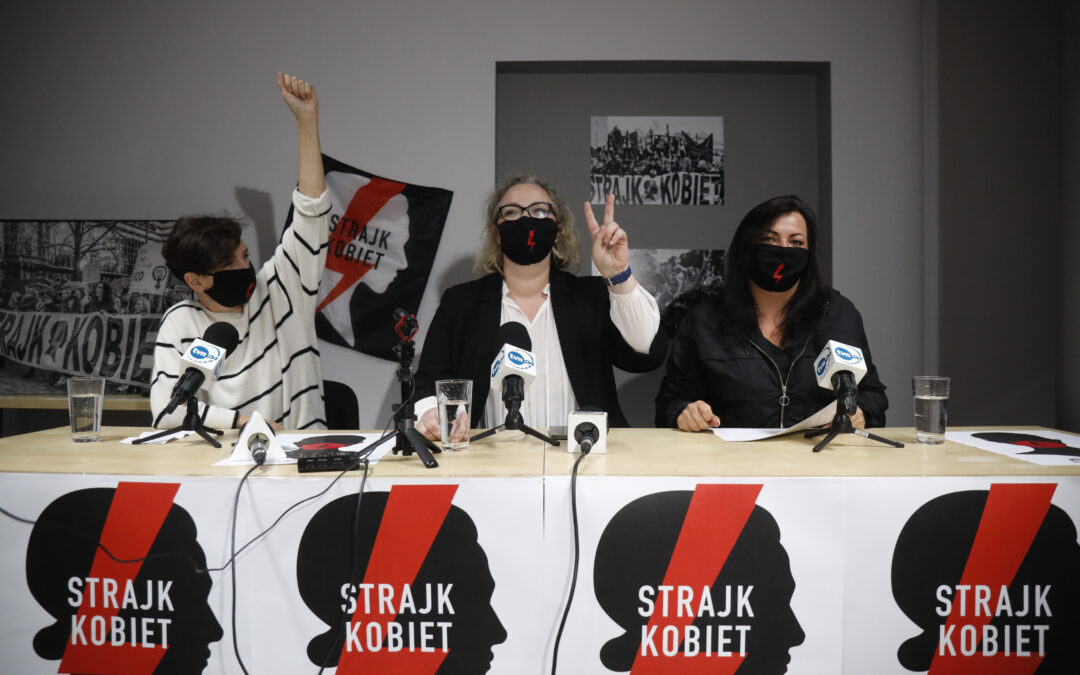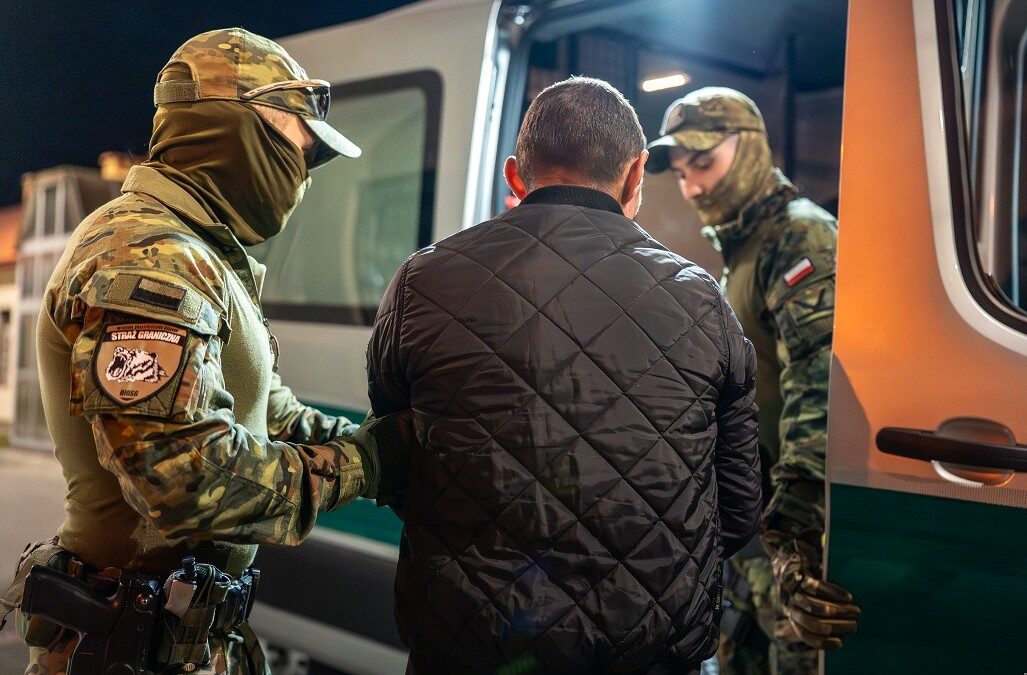The main organisers of ongoing demonstrations against an anti-abortion ruling by the Constitutional Tribunal have unveiled a set of political demands.
All-Poland Women’s Strike (Ogólnopolski Strajk Kobiet, OSK), a social movement, has been the primary force behind what are believed to be the largest protests in Poland since the fall of communism in 1989. Its red lightning bolt logo has become the demonstrators main symbol.
Yet, while those protests, which have now entered their 13th day, have focused primarily on opposing a ruling that paves the way for a near-total ban on abortion, the programme unveiled by OSK calls for a much broader progressive agenda in addition to improving access to abortion.
Some critics warn that the demands are unrealistic and risk distracting from the main cause, as well as potentially diminishing support for the protests.
At a press conference to outline its position on Sunday, one of OSK’s leaders, Marta Lempart, said they were giving “the government one week to deal with the catastrophe in the healthcare system”.
OSK calls for an increase in state healthcare spending to 10% of GDP – around double its current level – and suggested that this could be helped by transferring public funds that currently go to the church and public television, which is used for government “propaganda”.
They also called for a return to the rule of law, including a “proper [Constitutional] Tribunal”. The current institution is seen as being under the influence of the ruling Law and Justice (PiS) party, whose leader, Jarosław Kaczyński, is a close personal associate of the court’s president, Julia Przyłębska.
Among OSK’s other demands are creating a “secular state” (including withdrawing Poland from its concordat with the Vatican), protecting the climate, promoting animal rights, “stopping the fascistisation of public life”, and ending insecure so-called “junk contracts” for workers.
The movement’s leaders also called for greater rights for sexual and gender minorities. “LGBT are people, not an ideology,” they declared, offering a retort to rhetoric from the ruling party and president, who have portrayed LGBT as a dangerous foreign ideology.
OSK also demanded the dismissal of the recently appointed education minister, Przemysław Czarnek. As well as likening “LGBT ideology” to Nazism, Czarnek has been an outspoken critic of the abortion protests, threatening “consequences” against universities and teachers that support them.
OSK’s demands were immediately met with derision from the ruling party. Marek Suski, a senior PiS lawmaker, called them “unfeasible”, especially given the deadline of one week to implement them.
“Transferring money that has already been allocated somewhere is simply impossible,” Suski told state broadcaster TVP Info. He added that “the only thing missing was for the government to send [OSK] caviar and champagne.”
Commentators have also expressed doubts about how realistic OSK’s demands are – but also to what extent they reflect the wishes of most of the demonstrators, who have taken to the streets to protest a court ruling opposed by around four-fifths of Poles.
Many have compared OSK’s current direction to that taken by the Committee for the Defence of Democracy (KOD), a movement that emerged in 2015 in response to PiS’s judicial overhaul but fizzled out as it failed to build on the initial success of its large-scale protests.
OSK’s “consultation council”, which has helped conceive the new demands, “was meant to translate the authentic energy of the protests into political demands, [but instead] looks like an self-sabotage,” wrote Marcin Makowski, a political commentator, for Wirtualna Polska.
He pointed out that many of the figures in the council – both in terms of their political affiliations and older age compared to the young protesters – resemble those from KOD.
Syrena, an anarchist group that has been involved in the current abortion protests, also criticised OSK for forming a council that lacks representation from women actually involved in the protests.
“Where are the women from smaller towns and villages? Where are the female trade unionists? Where are people who speak publicly about their abortion experience? Where are people with disabilities?” asked Syrena. Their places “have been taken by men”.
Another leading women’s right’s group, Dwiewuchy Dwiewuchom, agreed that the composition of OSK’s council is “problematic”. However, it called on people to make their own “constructive proposals” rather than trying to “discredit the work done” by OSK.
Main image credit: Maciek Jazwiecki/Agencja Gazeta

Maria Wilczek is deputy editor of Notes from Poland. She is a regular writer for The Times, The Economist and Al Jazeera English, and has also featured in Foreign Policy, Politico Europe, The Spectator and Gazeta Wyborcza.




















